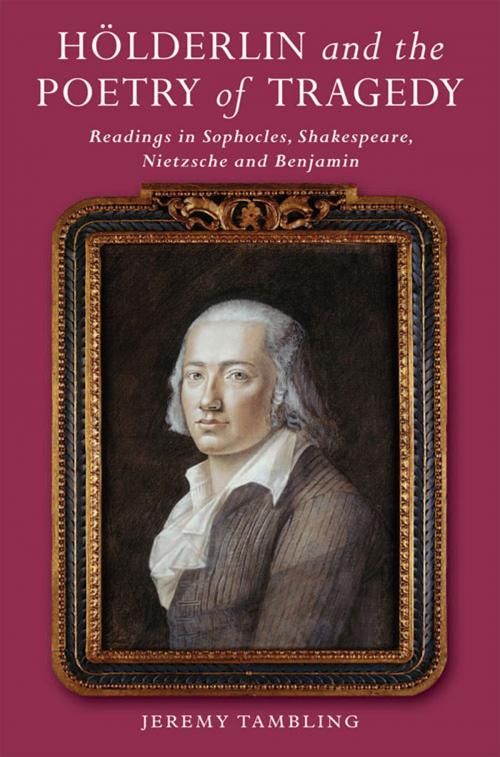Hölderlin and the Poetry of Tragedy
Readings in Sophocles, Shakespeare, Nietzsche and Benjamin
Nonfiction, Religion & Spirituality, Philosophy, Ancient, Biography & Memoir, Literary| Author: | Jeremy Tambling | ISBN: | 9781782841302 |
| Publisher: | Sussex Academic Press | Publication: | February 1, 2014 |
| Imprint: | Sussex Academic Press | Language: | English |
| Author: | Jeremy Tambling |
| ISBN: | 9781782841302 |
| Publisher: | Sussex Academic Press |
| Publication: | February 1, 2014 |
| Imprint: | Sussex Academic Press |
| Language: | English |
Focusing on Friedrich Hölderlin’s writings on Greek tragedy—especially the works of Sophocles, which he translated to German—this study also examines Hölderlin’s own poetry, which frequently engaged with tragedy. His musings enable a consideration of the various meanings of tragedy, providing a new reading of Shakespeare, particularly Julius Caesar, Hamlet, and Macbeth. The book also discusses Nietzsche’s The Birth of Tragedy, as well as the views of theorists and philosophers such as Walter Benjamin, Theodor Adorno, Martin Heidegger, Maurice Blanchot, and Jacques Derrida, all of whom were influenced to varying degrees by Hölderlin. Drawing upon the insights of Hegelian philosophy and psychoanalysis, this consideration gives readers ready access to a magnificent body of poetry and to the poet as a theorist of tragedy and madness. This is essential reading for an understanding of how tragedy pervades literature and politics, and how it has been regarded and written about, from Georg Wilhelm Friedrich Hegel to Walter Benjamin.
Focusing on Friedrich Hölderlin’s writings on Greek tragedy—especially the works of Sophocles, which he translated to German—this study also examines Hölderlin’s own poetry, which frequently engaged with tragedy. His musings enable a consideration of the various meanings of tragedy, providing a new reading of Shakespeare, particularly Julius Caesar, Hamlet, and Macbeth. The book also discusses Nietzsche’s The Birth of Tragedy, as well as the views of theorists and philosophers such as Walter Benjamin, Theodor Adorno, Martin Heidegger, Maurice Blanchot, and Jacques Derrida, all of whom were influenced to varying degrees by Hölderlin. Drawing upon the insights of Hegelian philosophy and psychoanalysis, this consideration gives readers ready access to a magnificent body of poetry and to the poet as a theorist of tragedy and madness. This is essential reading for an understanding of how tragedy pervades literature and politics, and how it has been regarded and written about, from Georg Wilhelm Friedrich Hegel to Walter Benjamin.















